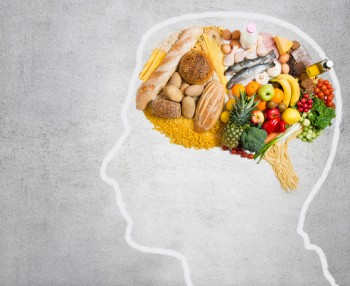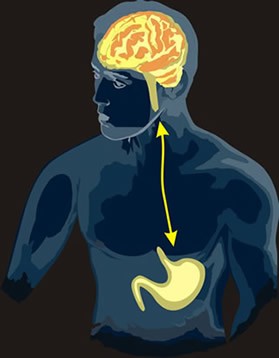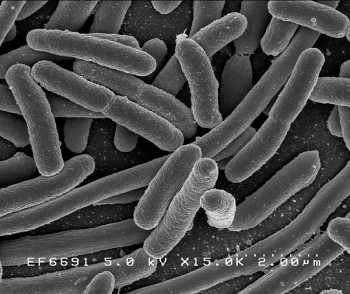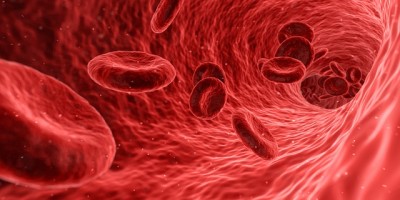You can do all the memory exercises that are available in the market, and all the sensorial stimulation and development therapies, but if the brain does not have the building blocks that allow to set this information in it, it will be quite difficult. It is as if the best architect in the world did not have construction materials to build his houses.
 We must provide the body with these basic materials through a good nutrition in order to build a strong and healthy brain.
We must provide the body with these basic materials through a good nutrition in order to build a strong and healthy brain.
We acquire a set of beliefs concerning what is a healthy diet starting from our childhood, and we all follow, more or less, these ideas which come from the family, school, advertising, doctors, tradition, etc. But maybe these beliefs about a “healthy diet” are not exactly correct, after all…?
Our brain does not have any special need different from the rest of the body. It needs energy from glucose; the building blocks for the neurones from amino acids and fatty acids; minerals and vitamins for the biochemical reactions; as well as water.
All these nutrients come from the food we consume, and the recycling of the damaged tissues of our body (yes, our body is very ecologic!). So we mainly focus our diet in order to provide the food we think is good for our body. But we forget that these nutrients must be correctly digested, transformed, absorbed, delivered to the brain, integrated into the tissue; and the residues of all these activities must be removed form the tissues.
When we plan our meals, we need to think not only about providing the food that our brain needs, but we must also take care of all the processes that our food will be submitted to, from the mouth to the brain. Moreover, we must avoid eating some substances that could disturb the proper functioning of the different systems that perform these processes: digestive system, circulatory system and detoxification system.
In the next part I will explain how to help the optimal functioning of all these systems with a good nutrition.
Furthermore, transport and storage time of the produce from the field to our plate is also very important. For example, up to 50% of vitamin C is lost in 24 hours after picking the produce. Green beans experience a typical nutrient loss of 45% from the field to the plate (there is usually a about 15-day period), and broccoli and cauliflower suffer a 25% loss.
This is why it is better to buy organic, local and seasonal products.
Another issue concerning nutrient-rich products are wholegrain products. Refined products such as white sugar and white flour must be removed from our diets because they are void of several minerals, vitamins, and fiber contained in the husk of the grain. But as we will see in the next section, the consumption of whole grains may bring about some problems because of their anti-nutrient content, which is higher in whole grains than in refined grains. So we’d better remove all grains from our diets.
In processed products nutrients are destroyed, altered or rendered useless for the body. They also contain additives and other harmful substances. Home made food is infinitely better.
Special attention must be paid to fats when talking about brain nutrition. The brain is composed in a way that is is nearly 60% fat. So the kind of fat we eat really matters for brain health. In that sense, it is important to avoid any kind of burnt oils and fats, and industrial TRANS fats.
Our body needs saturated and unsaturated fat, but up to now, only 2 fatty acids have been found to be essential as external sources, because the body can not manufacture them: the linoleic acid omega 6 and α-linolenic acid omega 3 (9). The rest of fatty acids can be derived from these two omega 6 and omega 3. So it is important to provide good sources of these fats, which can be found in any kind of whole product in more or less amount (whole grains, nuts, vegetables, fruits, fish, meat, eggs, …).
However, it has been found that the ratio between these two kinds of fatty acids, omega 6 to omega3, is also very important. The ideal ratio is set to 1:1 or 2:1 (16); higher ratios progressively increase the risk of developing inflammatory diseases. So that means that food that contains an excess of omega 6 is not optimal for health, such as grains and most nuts and seeds, and all kinds of grain fed animals and animal sub-products. Learn more about fats in this article .
 More than 2,000 years ago Hippocrates said “All diseases begin in the gut”.
More than 2,000 years ago Hippocrates said “All diseases begin in the gut”.
The gut and the brain are connected. The gut means the first step in providing the brain with nutrients to. But as we will see, the gut may also become a source of toxicity for the brain.
Moreover, it’s said that the gut is the second brain. 90% of the body’s serotonin and 50% of its dopamine is made in the gut.
Several substances may disturb the correct functioning of the digestive system. They inhibit the enzymatic function, the scissors that break down the food into elementary substances. Here is a list with some of the most important digestion disturbing substances:
* Anti-nutrients such as phytates, oxalates, and saponins contained in legumes (beans, lentils, peas, soy), grains, seeds and nuts. These anti-nutrients are very much reduced by different culinary processes, such as fermentation, soaking, sprouting and cooking; but even after all these processes, the amount of anti-nutrients is still considerable and can really disturb the digestion. Read more here.
* Vinegar: the acetic acid is a very powerful digestive inhibitor of starch
* Alcohol: impairs protein digestion
* Medicines: for example anti-acid and proton pump inhibitors, inhibit the hydrochloric acid production, impairing the protein digestion.
It is not only what we eat that matters, the way we eat is much more important. If we eat at a stressful moment, we eat too much food, or too frequently, or in a bad combination, even the the world’s healthiest food may be very harmful. The most frequent mistake for most people is overeating, even if they eat healthy food such as vegetables. Read more here.
But even considering that the best conditions for digestion are provided, we must face another problem: having to be able to produce the enzymes that digest that food.
Some foods are, by themselves, indigestible for humans. For example, we can secrete some kind of amylase enzyme to digest starches, but this ability is very limited, compared to some birds that can digest even the starch of raw grains. Our usual food is full of different substances which are, in fact, indigestible for us:
* Some oligosaccharides that are present in legumes, which are not completely eliminated with the different culinary process (12), (13)
* Protein of modern grains (gliadin in wheat, secalin in rye, hordein in barley, avenin in oats, zein in corn, kafirin in sorghum, and panicin in millet). Read more about why modern grains are indigestible in Dr. Seignalet’s book. (11)
* Acrylamides and PAH from burnt meat, starch and oils, and all kinds of grilled food. Pasteurization, deep-frying and barbecuing are the worst cooking methods. In general, the higher the temperature that food is cooked at, the more difficult it is to digest. (14)
* Lactose for adults (2)
* Additives (15)
Also, some people suffer from food intolerances because of their lack of some specific enzymes, for different reasons. Hypochlorhydria is a deficit of hydrochloric acid in the stomach to digest proteins; a deficit of amylase secreted by the pancreas to digest starches, which may be caused by an adrenal fatigue; the lack of bile when there has been a gallbladder ablation, which impairs fat digestion; etc.
All these foods that can’t be digested by our enzymes, are then digested by different undesirable strains of microorganisms that grow in our gut. These bacteria, and sometimes also protozoa and worms, feed on the food that we can’t digest, and the waste of their digestion are gas and toxins (called organic metabolites) that can lead to a long list of diseases in different parts of the body. In the brain, some metabolites are particularly dangerous, such as the opioid peptides coming from gluten and casein (read more here). Acetaldehyde and alcohol coming from yeasts in the gut are also toxic for the brain; clostridia neurotoxins with tetanus-like effect; histamine and other amines; etc. The problems related to these toxins are very different: from a mild lack of memory or sleeping problems to a very acute psychiatric disease. Read more about the detailed effect of toxins in Dr. Campbell-McBride’s book (2). Dr. Campbell-McBride suggests following the GAPS diet in order to heal all kind of psychological and neurological diseases.
The dysbiosis or unbalance of the gut flora also affects the synthesis and methylation of vitamins from the K and B group, which perform a very important role in the brain function.
 We must provide the body with these basic materials through a good nutrition in order to build a strong and healthy brain.
We must provide the body with these basic materials through a good nutrition in order to build a strong and healthy brain.We acquire a set of beliefs concerning what is a healthy diet starting from our childhood, and we all follow, more or less, these ideas which come from the family, school, advertising, doctors, tradition, etc. But maybe these beliefs about a “healthy diet” are not exactly correct, after all…?
Our brain does not have any special need different from the rest of the body. It needs energy from glucose; the building blocks for the neurones from amino acids and fatty acids; minerals and vitamins for the biochemical reactions; as well as water.
All these nutrients come from the food we consume, and the recycling of the damaged tissues of our body (yes, our body is very ecologic!). So we mainly focus our diet in order to provide the food we think is good for our body. But we forget that these nutrients must be correctly digested, transformed, absorbed, delivered to the brain, integrated into the tissue; and the residues of all these activities must be removed form the tissues.
When we plan our meals, we need to think not only about providing the food that our brain needs, but we must also take care of all the processes that our food will be submitted to, from the mouth to the brain. Moreover, we must avoid eating some substances that could disturb the proper functioning of the different systems that perform these processes: digestive system, circulatory system and detoxification system.
In the next part I will explain how to help the optimal functioning of all these systems with a good nutrition.
1) Food intake: nutrient-rich food
We need to eat nutrient-rich food. This is why it is very important to consume produce that is grown in rich and healthy soils. Poor soils give “nutrient poor” food. For example, tomatoes grown in mineralized soil had five times as much calcium, 13 times as much magnesium, and 1.900 times as much iron as samples grown in depleted soils. (10)Furthermore, transport and storage time of the produce from the field to our plate is also very important. For example, up to 50% of vitamin C is lost in 24 hours after picking the produce. Green beans experience a typical nutrient loss of 45% from the field to the plate (there is usually a about 15-day period), and broccoli and cauliflower suffer a 25% loss.
This is why it is better to buy organic, local and seasonal products.

Another issue concerning nutrient-rich products are wholegrain products. Refined products such as white sugar and white flour must be removed from our diets because they are void of several minerals, vitamins, and fiber contained in the husk of the grain. But as we will see in the next section, the consumption of whole grains may bring about some problems because of their anti-nutrient content, which is higher in whole grains than in refined grains. So we’d better remove all grains from our diets.
In processed products nutrients are destroyed, altered or rendered useless for the body. They also contain additives and other harmful substances. Home made food is infinitely better.
Special attention must be paid to fats when talking about brain nutrition. The brain is composed in a way that is is nearly 60% fat. So the kind of fat we eat really matters for brain health. In that sense, it is important to avoid any kind of burnt oils and fats, and industrial TRANS fats.
Our body needs saturated and unsaturated fat, but up to now, only 2 fatty acids have been found to be essential as external sources, because the body can not manufacture them: the linoleic acid omega 6 and α-linolenic acid omega 3 (9). The rest of fatty acids can be derived from these two omega 6 and omega 3. So it is important to provide good sources of these fats, which can be found in any kind of whole product in more or less amount (whole grains, nuts, vegetables, fruits, fish, meat, eggs, …).
However, it has been found that the ratio between these two kinds of fatty acids, omega 6 to omega3, is also very important. The ideal ratio is set to 1:1 or 2:1 (16); higher ratios progressively increase the risk of developing inflammatory diseases. So that means that food that contains an excess of omega 6 is not optimal for health, such as grains and most nuts and seeds, and all kinds of grain fed animals and animal sub-products. Learn more about fats in this article .
2) Digestive system: Gut-Brain connection
 More than 2,000 years ago Hippocrates said “All diseases begin in the gut”.
More than 2,000 years ago Hippocrates said “All diseases begin in the gut”.The gut and the brain are connected. The gut means the first step in providing the brain with nutrients to. But as we will see, the gut may also become a source of toxicity for the brain.
Moreover, it’s said that the gut is the second brain. 90% of the body’s serotonin and 50% of its dopamine is made in the gut.
Several substances may disturb the correct functioning of the digestive system. They inhibit the enzymatic function, the scissors that break down the food into elementary substances. Here is a list with some of the most important digestion disturbing substances:
* Anti-nutrients such as phytates, oxalates, and saponins contained in legumes (beans, lentils, peas, soy), grains, seeds and nuts. These anti-nutrients are very much reduced by different culinary processes, such as fermentation, soaking, sprouting and cooking; but even after all these processes, the amount of anti-nutrients is still considerable and can really disturb the digestion. Read more here.
* Vinegar: the acetic acid is a very powerful digestive inhibitor of starch
* Alcohol: impairs protein digestion
* Medicines: for example anti-acid and proton pump inhibitors, inhibit the hydrochloric acid production, impairing the protein digestion.
It is not only what we eat that matters, the way we eat is much more important. If we eat at a stressful moment, we eat too much food, or too frequently, or in a bad combination, even the the world’s healthiest food may be very harmful. The most frequent mistake for most people is overeating, even if they eat healthy food such as vegetables. Read more here.
But even considering that the best conditions for digestion are provided, we must face another problem: having to be able to produce the enzymes that digest that food.
Some foods are, by themselves, indigestible for humans. For example, we can secrete some kind of amylase enzyme to digest starches, but this ability is very limited, compared to some birds that can digest even the starch of raw grains. Our usual food is full of different substances which are, in fact, indigestible for us:
* Some oligosaccharides that are present in legumes, which are not completely eliminated with the different culinary process (12), (13)
* Protein of modern grains (gliadin in wheat, secalin in rye, hordein in barley, avenin in oats, zein in corn, kafirin in sorghum, and panicin in millet). Read more about why modern grains are indigestible in Dr. Seignalet’s book. (11)
* Acrylamides and PAH from burnt meat, starch and oils, and all kinds of grilled food. Pasteurization, deep-frying and barbecuing are the worst cooking methods. In general, the higher the temperature that food is cooked at, the more difficult it is to digest. (14)
* Lactose for adults (2)
* Additives (15)
Also, some people suffer from food intolerances because of their lack of some specific enzymes, for different reasons. Hypochlorhydria is a deficit of hydrochloric acid in the stomach to digest proteins; a deficit of amylase secreted by the pancreas to digest starches, which may be caused by an adrenal fatigue; the lack of bile when there has been a gallbladder ablation, which impairs fat digestion; etc.

All these foods that can’t be digested by our enzymes, are then digested by different undesirable strains of microorganisms that grow in our gut. These bacteria, and sometimes also protozoa and worms, feed on the food that we can’t digest, and the waste of their digestion are gas and toxins (called organic metabolites) that can lead to a long list of diseases in different parts of the body. In the brain, some metabolites are particularly dangerous, such as the opioid peptides coming from gluten and casein (read more here). Acetaldehyde and alcohol coming from yeasts in the gut are also toxic for the brain; clostridia neurotoxins with tetanus-like effect; histamine and other amines; etc. The problems related to these toxins are very different: from a mild lack of memory or sleeping problems to a very acute psychiatric disease. Read more about the detailed effect of toxins in Dr. Campbell-McBride’s book (2). Dr. Campbell-McBride suggests following the GAPS diet in order to heal all kind of psychological and neurological diseases.
The dysbiosis or unbalance of the gut flora also affects the synthesis and methylation of vitamins from the K and B group, which perform a very important role in the brain function.
Another consequence of food digestion problems is inflammation. Inflammation appears when some of these partially digested foods cross the gut-blood barrier because of the leaky gut syndrome. Other undesirable substances that can finish in the blood are chemicals, bacteria, and virus. Then, these substances trigger an immune reaction in the body, that is, an inflammation, which is the origin of a high oxidative stress and free radical production that damages the tissues. When this inflammation happens in the brain, it can lead to psychological pathologies, degenerative diseases, behavioral problems, etc. And these problems can take place without the need of any kind of gastro-intestinal symptom; so food digestion problems may manifest directly in the brain. (1)
It’s also very important to take into account the amount of energy needed for digestion, in spite of the energy delivered to other parts of the body, such as the brain. Read this other article to learn more about the body energy.
After the food is digested, the glucides, amino acids, fatty acids, vitamins and minerals must cross the gut lining in order to get to the blood stream. This process is called absorption, and we need a healthy gut lining in order to perform a proper absorption.
It has been shown that some food and mainly a big amount of toxins can damage the gut lining, such as gluten and lectin contained in modern grains (1); mercury in amalgam dental fillings; antibiotics and anti-inflammatory pills; pesticides, and a long list of chemical substances. (2)
 Transport of the nutrients and oxygen to the brain must be done in a proper way.
Transport of the nutrients and oxygen to the brain must be done in a proper way.
Some food may cause damage in the circulatory system, preventing proper blood flow in the brain.
Dr, Perlmutter (1) explains that one of the main problems that disturbs the circulatory system and impairs the function of the brain is the phenomenon called glycation of proteins. Glycation is when sugars bond to proteins (such as haemoglobin), rendering these proteins useless and damaging the tissues: blood vessels, organs, skin, muscles, etc. This happens when there’s too much sugar in the blood, which comes from a diet that is too rich in carbohydrates and sugars. A study from the Mayo clinic showed that high carbohydrate diets increase four times the risk of developing mild cognitive impairment, characterised by memory, language, thinking and judgement problems.
Cholesterol is a controversial subject concerning its effect on the cardiovascular system. In conventional medicine, it is very well-known that it is pointed as one of the major culprits of cardiovascular problems. But many research studies have shown that in fact, people with high cholesterol levels live longer, and cholesterol is a fat we really need for our brain. (1)
Dr Campbell-McBride (8) says that cholesterol is a substance that repairs damaged tissues, such as blood vessels, and if blood cholesterol is too high we should find out the reason why some tissues suffer such a high degree of tear. Our liver makes 75% of all cholesterol, so even if we cut down on the external cholesterol intake, blood cholesterol will still be high.
Dr Campbell-McBride created the GAPS diet for all kinds of neurological and psychological diseases, where all carbohydrates, starches and sugars are completely removed and a high intake of animal fat is encouraged.
Dr. Perlmutter (1) claims in a study that people with the lowest LDL cholesterol were at increased risk for Parkinson’s disease by approximately 350 percent. LDL transports cholesterol to the neurons, where it performs critically important functions. But an LDL molecule can be damaged by the free radicals of an oxydative process, such as the one created by high carbohydrate diets, and any kind of psychological or physical stress to the body. This oxydative stress is the one that also damages the blood vessels, the one that is responsible for the cardiovascular diseases that also impair the proper transportation of the nutrients to the brain. Dr. Perlmutter strongly recommends a fat-based diet, with copious amounts of fat and cholesterol, with some protein and vegetables, and a very small amount of gluten-free grains and sugars (syrups, dairy and fruits included).
Dr. Graham (4) says that a glycation problem arises when there are too many fats and sugars in the blood at the same time, because fats render unusable insuline and so prevent sugars from being properly absorbed, increasing the amount of sugars in the blood and favoring glycation. He supports this argument with the Pritikin Program (17), which is scientifically proven by more than 100 studies. So he advocates a low fat and high fruit diet, as he belongs to the Natural Hygiene current, that considers that humans are essentially frugivore (fruit eaters). On the contrary, a high intake of fats comes from a high intake of pure vegetable oils and/or animal fats, which are extracted from the natural products (olives, nuts, seeds) in a mechanical refinement process that is an industrial process to a higher or lower degree; while eating a reasonable amount of whole fat which natural products contain, which is the case of some fruits such as olives, avocado and coconut, is not a problem.
The conclusion is that fats and sugars are incompatible in a same diet. Both a high-fat low-carbohydrate diet (a ketogenic diet), and a high-fruit low-fat diet (a frugivore diet) show good results in preventing and reversing brain diseases, as well as healing most of diseases. Personally, I’ve got better results with the frugivore diet, although the ketogenic diet is enough in most of the cases.
 The most frequently used solution to improve blood flow is supplementation with omega 3 fatty acids (EPA and DHA) in the form of fish oil. It’s a very useful remedy, but as all remedies (natural or chemical), it does have side effects. All kinds of remedies that improve blood flow also have an anti-clotting effect, which may be dangerous if a person suffers an accident because of the risk of hemorrhage. It also causes low blood pressure, affects cholesterol levels and may cause vitamin E deficiency. (18) Safety values are set in order to decrease these risks, but sometimes the therapeutic amount that can really have an impact on the brain and cardiovascular diseases is higher than the security values.
The most frequently used solution to improve blood flow is supplementation with omega 3 fatty acids (EPA and DHA) in the form of fish oil. It’s a very useful remedy, but as all remedies (natural or chemical), it does have side effects. All kinds of remedies that improve blood flow also have an anti-clotting effect, which may be dangerous if a person suffers an accident because of the risk of hemorrhage. It also causes low blood pressure, affects cholesterol levels and may cause vitamin E deficiency. (18) Safety values are set in order to decrease these risks, but sometimes the therapeutic amount that can really have an impact on the brain and cardiovascular diseases is higher than the security values.
It’s also very important to take into account the amount of energy needed for digestion, in spite of the energy delivered to other parts of the body, such as the brain. Read this other article to learn more about the body energy.
After the food is digested, the glucides, amino acids, fatty acids, vitamins and minerals must cross the gut lining in order to get to the blood stream. This process is called absorption, and we need a healthy gut lining in order to perform a proper absorption.
It has been shown that some food and mainly a big amount of toxins can damage the gut lining, such as gluten and lectin contained in modern grains (1); mercury in amalgam dental fillings; antibiotics and anti-inflammatory pills; pesticides, and a long list of chemical substances. (2)
3) Circulatory system: a good delivery
 Transport of the nutrients and oxygen to the brain must be done in a proper way.
Transport of the nutrients and oxygen to the brain must be done in a proper way. Some food may cause damage in the circulatory system, preventing proper blood flow in the brain.
Dr, Perlmutter (1) explains that one of the main problems that disturbs the circulatory system and impairs the function of the brain is the phenomenon called glycation of proteins. Glycation is when sugars bond to proteins (such as haemoglobin), rendering these proteins useless and damaging the tissues: blood vessels, organs, skin, muscles, etc. This happens when there’s too much sugar in the blood, which comes from a diet that is too rich in carbohydrates and sugars. A study from the Mayo clinic showed that high carbohydrate diets increase four times the risk of developing mild cognitive impairment, characterised by memory, language, thinking and judgement problems.
Cholesterol is a controversial subject concerning its effect on the cardiovascular system. In conventional medicine, it is very well-known that it is pointed as one of the major culprits of cardiovascular problems. But many research studies have shown that in fact, people with high cholesterol levels live longer, and cholesterol is a fat we really need for our brain. (1)
Dr Campbell-McBride (8) says that cholesterol is a substance that repairs damaged tissues, such as blood vessels, and if blood cholesterol is too high we should find out the reason why some tissues suffer such a high degree of tear. Our liver makes 75% of all cholesterol, so even if we cut down on the external cholesterol intake, blood cholesterol will still be high.
Dr Campbell-McBride created the GAPS diet for all kinds of neurological and psychological diseases, where all carbohydrates, starches and sugars are completely removed and a high intake of animal fat is encouraged.
Dr. Perlmutter (1) claims in a study that people with the lowest LDL cholesterol were at increased risk for Parkinson’s disease by approximately 350 percent. LDL transports cholesterol to the neurons, where it performs critically important functions. But an LDL molecule can be damaged by the free radicals of an oxydative process, such as the one created by high carbohydrate diets, and any kind of psychological or physical stress to the body. This oxydative stress is the one that also damages the blood vessels, the one that is responsible for the cardiovascular diseases that also impair the proper transportation of the nutrients to the brain. Dr. Perlmutter strongly recommends a fat-based diet, with copious amounts of fat and cholesterol, with some protein and vegetables, and a very small amount of gluten-free grains and sugars (syrups, dairy and fruits included).
Dr. Graham (4) says that a glycation problem arises when there are too many fats and sugars in the blood at the same time, because fats render unusable insuline and so prevent sugars from being properly absorbed, increasing the amount of sugars in the blood and favoring glycation. He supports this argument with the Pritikin Program (17), which is scientifically proven by more than 100 studies. So he advocates a low fat and high fruit diet, as he belongs to the Natural Hygiene current, that considers that humans are essentially frugivore (fruit eaters). On the contrary, a high intake of fats comes from a high intake of pure vegetable oils and/or animal fats, which are extracted from the natural products (olives, nuts, seeds) in a mechanical refinement process that is an industrial process to a higher or lower degree; while eating a reasonable amount of whole fat which natural products contain, which is the case of some fruits such as olives, avocado and coconut, is not a problem.
The conclusion is that fats and sugars are incompatible in a same diet. Both a high-fat low-carbohydrate diet (a ketogenic diet), and a high-fruit low-fat diet (a frugivore diet) show good results in preventing and reversing brain diseases, as well as healing most of diseases. Personally, I’ve got better results with the frugivore diet, although the ketogenic diet is enough in most of the cases.
 The most frequently used solution to improve blood flow is supplementation with omega 3 fatty acids (EPA and DHA) in the form of fish oil. It’s a very useful remedy, but as all remedies (natural or chemical), it does have side effects. All kinds of remedies that improve blood flow also have an anti-clotting effect, which may be dangerous if a person suffers an accident because of the risk of hemorrhage. It also causes low blood pressure, affects cholesterol levels and may cause vitamin E deficiency. (18) Safety values are set in order to decrease these risks, but sometimes the therapeutic amount that can really have an impact on the brain and cardiovascular diseases is higher than the security values.
The most frequently used solution to improve blood flow is supplementation with omega 3 fatty acids (EPA and DHA) in the form of fish oil. It’s a very useful remedy, but as all remedies (natural or chemical), it does have side effects. All kinds of remedies that improve blood flow also have an anti-clotting effect, which may be dangerous if a person suffers an accident because of the risk of hemorrhage. It also causes low blood pressure, affects cholesterol levels and may cause vitamin E deficiency. (18) Safety values are set in order to decrease these risks, but sometimes the therapeutic amount that can really have an impact on the brain and cardiovascular diseases is higher than the security values. It is always better to try to find out what is the origin of the neurologic or cardiovascular condition, as it may be, for example, the glycation or inflammation process due to grains, instead of rushing to have some remedies or supplements.
Other solutions in order to improve the brain function by identifying the factors that disrupt blood flow are described by Dr Amen (3):
Other solutions in order to improve the brain function by identifying the factors that disrupt blood flow are described by Dr Amen (3):
* Constrictors: stress, caffeine, and nicotine
* Limiting the blood flow: heart disease, diabetes, lack of sleep, lack of exercise
* Toxicity: drugs, tobacco, alcohol abuse, environmental toxins
* Dehydration
Dr. Amen also suggests some healthy lifestyle choices in order to improve the brain function:
* Avoid practicing risky activities for the brain, such as heading soccer balls; riding a motorcycle or bike, skateboarding, skiing, snowboarding without helmet; driving without seat belt; etc.
* Avoid chronic stress
* Avoid negative thinking, chronic worry, or anger
* Avoid aspartame and monosodium glutamate
* Avoid excessive TV, video games, computer, cell phone time
* Exercise, sleep enough, have a healthy diet
* Limiting the blood flow: heart disease, diabetes, lack of sleep, lack of exercise
* Toxicity: drugs, tobacco, alcohol abuse, environmental toxins
* Dehydration
Dr. Amen also suggests some healthy lifestyle choices in order to improve the brain function:
* Avoid practicing risky activities for the brain, such as heading soccer balls; riding a motorcycle or bike, skateboarding, skiing, snowboarding without helmet; driving without seat belt; etc.
* Avoid chronic stress
* Avoid negative thinking, chronic worry, or anger
* Avoid aspartame and monosodium glutamate
* Avoid excessive TV, video games, computer, cell phone time
* Exercise, sleep enough, have a healthy diet
4) Detoxification system: keep clean inside
In Natural Hygiene, toxemia is the main responsible for most diseases. When toxic wastes can not be properly removed from the tissues, then the tissue cells are damaged because of the acid toxicity and the lack of oxygen and nutrients. When the accumulation of debris in the interstitial fluid that baths the cells, coming from an endogenous production or external sources, is quicker than the removal process, then toxemia is present.
It has been shown that most people with neurological diseases have some kind of detoxification system failure. Different genetic polymorphism associated with a poor detoxification system have been found that are related with neurological diseases (6). In particular, the APOE gene has been strongly related to Alzheimer disease (7).
People with an impaired detoxification system must pay special attention to both the internal and external sources of toxicity. That means taking care of all kinds of toxins in one’s environment; in food, air, water, radiations, skin, etc. In this article you will find a detailed explanation about different sources of external toxicity.
Regarding the endogenous production of toxins, the gut flora takes a very important role. As we saw when we were talking about the digestive system, undesirable opportunistic bacteria may produce a wide range of toxins. Taking care of our diet, as we explained in that section, is the first step towards a healthy gut and brain.
Another of the main issues related with gut flora is preventing constipation. When constipations are installed, the food ferments and putrefies in the gut, as the consequence of bacterial action. In order to enjoy a regular bowel transit, several measures are suggested here and solutions here.
It has been shown that most people with neurological diseases have some kind of detoxification system failure. Different genetic polymorphism associated with a poor detoxification system have been found that are related with neurological diseases (6). In particular, the APOE gene has been strongly related to Alzheimer disease (7).
People with an impaired detoxification system must pay special attention to both the internal and external sources of toxicity. That means taking care of all kinds of toxins in one’s environment; in food, air, water, radiations, skin, etc. In this article you will find a detailed explanation about different sources of external toxicity.
Regarding the endogenous production of toxins, the gut flora takes a very important role. As we saw when we were talking about the digestive system, undesirable opportunistic bacteria may produce a wide range of toxins. Taking care of our diet, as we explained in that section, is the first step towards a healthy gut and brain.
Another of the main issues related with gut flora is preventing constipation. When constipations are installed, the food ferments and putrefies in the gut, as the consequence of bacterial action. In order to enjoy a regular bowel transit, several measures are suggested here and solutions here.
Conclusion:
In order to enjoy an improved brain fitness, it is important to follow a healthy lifestyle and a good nutrition, provided not only by a healthy diet, but also a well-performing digestive system, circulatory system and detoxification system. Our nutrition habits have to take care of all these systems, apart from the very well known rule of providing the essential nutrients that the brain needs.
In this sense, it is highly recommended by most of the diets to avoid all kind of grains and refined sugars. Then, every kind of diet recommends different guidelines in terms of proteins, fats and fruits. A bio-individual approach is the best solution to find out the best diet for every person.
Bibliografía:
In this sense, it is highly recommended by most of the diets to avoid all kind of grains and refined sugars. Then, every kind of diet recommends different guidelines in terms of proteins, fats and fruits. A bio-individual approach is the best solution to find out the best diet for every person.
- Dr. Perlmutter, “Grain Brain”
- Dr. Natasha Campbell-McBride, “Gut and Psychology syndrome”
- Dr. Amen, “Magnificent mind at any age”
- Dr. Graham, “The 80/10/10 Diet”
- Dr. Herbert Shelton, “Hygienic Systems Vol II”
- “A key role for an impaired detoxification mechanism in the etiology and severity of autism spectrum disorders”
- “Alzheimer's genes: Are you at risk?”
- Dr. Natasha Campbell-McBride “Put your heart in your mouth”
- “Discovery of essential fatty acids”
- Dr. Firman Rutgers University, 1948
- Dr. Jean Seignalet, “L’alimentation ou la troisième médecine”
- “ Effect of soaking and cooking on the oligosaccharides and lectins in red kidney beans”
- “Oligosaccharide content and composition of legumes and their reduction by soaking, cooking, ultrasound, and high hydrostatic pressure”
- “The dangers of over-cooking your food”
- “Researcher Links Digestive Problems to Food Additive”
- “The importance of the ratio of omega-6/omega-3 essential fatty acids”
- “The science”
- Mayo Clinic, Drugs and Supplements “Omega-3 fatty acids, fish oil, alpha-linolenic acid”
 We all long for an optimal brain function, but most people, from children to the eldest, complain about brain weaknesses: lack of memory, poor concentration, learning disorders, poor results at school, low performance at work, absent-mindedness, hyperactivity, …
We all long for an optimal brain function, but most people, from children to the eldest, complain about brain weaknesses: lack of memory, poor concentration, learning disorders, poor results at school, low performance at work, absent-mindedness, hyperactivity, … 











